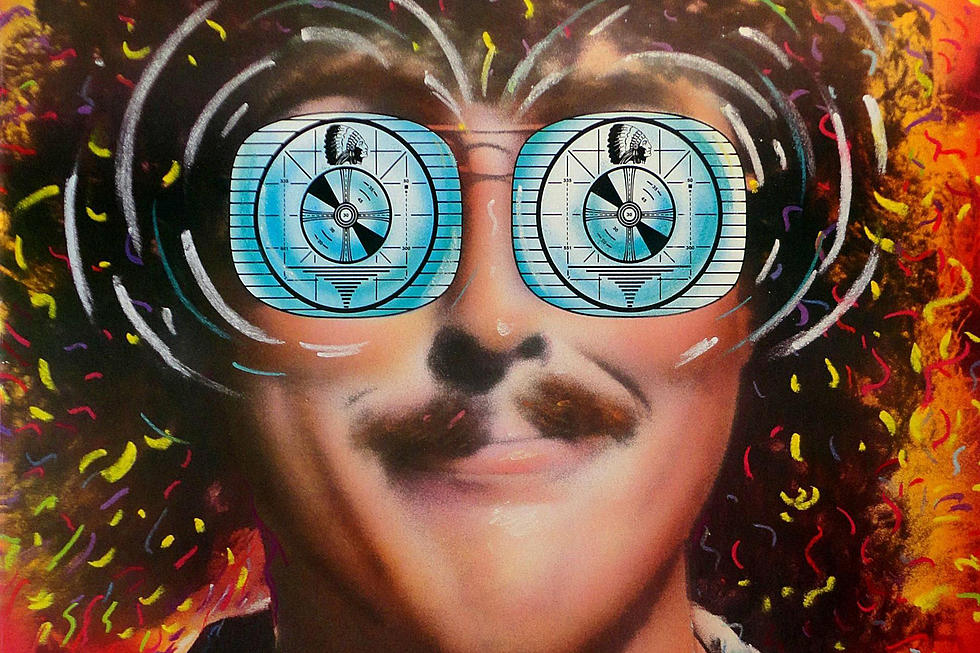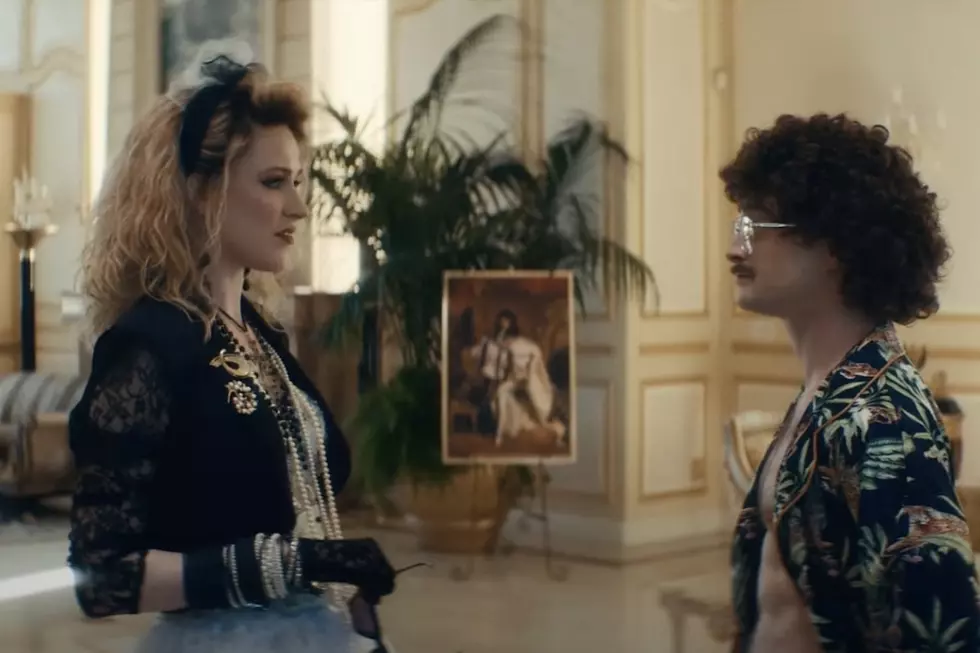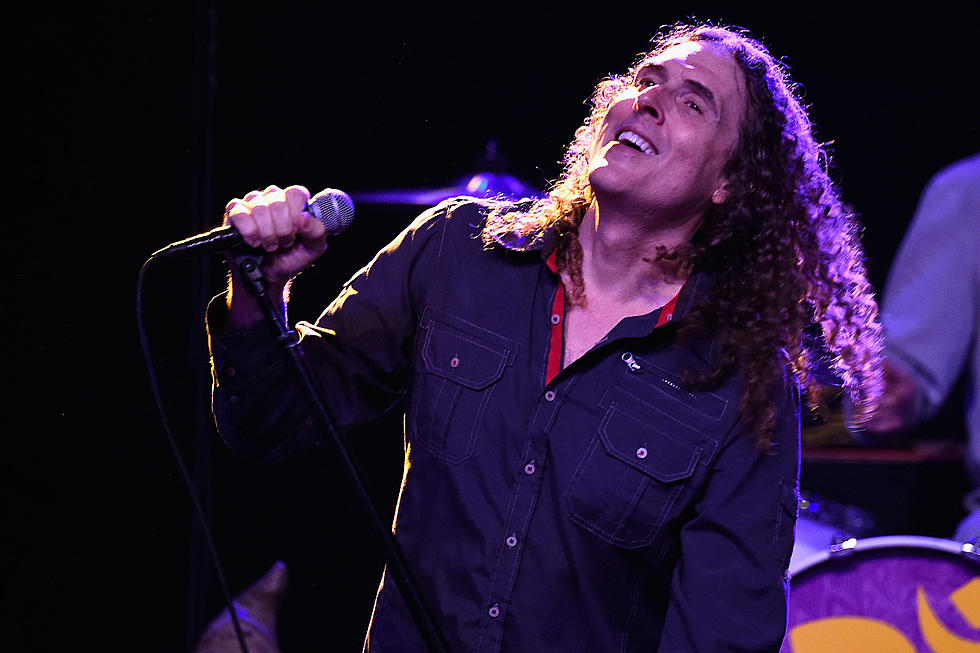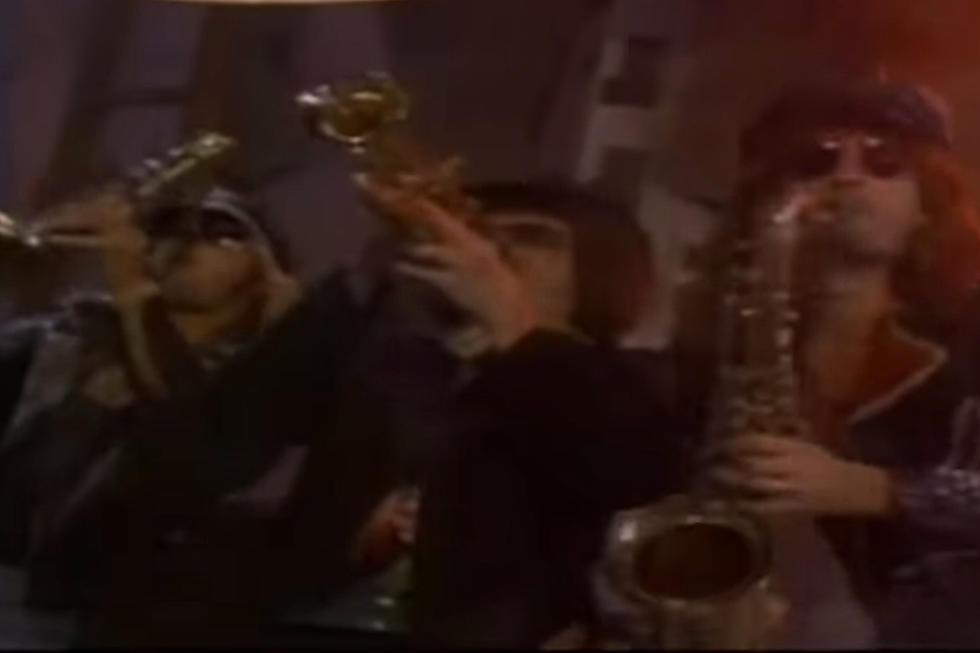
30 Years Ago: ‘Weird Al’ Yankovic’s ‘UHF’ Becomes a Cult Classic
Making the progression from music videos to movies seemed like a natural fit for “Weird Al" Yankovic. As the rise of MTV continued in the '80s, Yankovic was able to make his name with his clever parody songs and videos, such as his extended riff on Michael Jackson’s “Bad” with his own “Fat." So why not make a movie? Though Yankovic and his gleeful comic sensibilities may have felt appropriate for the big screen, the resulting effort, 1989's UHF, only ever gained a cult status.
We Got It All
That cult status, of course, wasn’t what anyone planned. Yankovic and his manager, Jay Levey, collaborated on the script for UHF, despite neither of them having a lot of awareness of what would go into the making of a film. As Yankovic described in an oral history at the A.V. Club, “I always try to put myself out of my comfort zone and out of my depth, and hopefully somewhere along the line, I’ll catch up.” Though one of Yankovic’s favorite comedies, the manic 1980 classic Airplane!, all but eschews a plot in favor of gag after gag after gag, he and Levey lighted upon a shoestring plot for their own parody film, in which the musician would star as George Newman, a slacker who is bequeathed a low-rent UHF station on which he and his loopy friends begin creating unique programming that itself inspires a passionate if small fanbase.
The script took a while to convince studios — as noted in that oral history, Yankovic and Levy pitched it for three years after the initial studio, New Line, passed. Eventually, the script wound up with producers Gene Kirkwood (of Rocky) and John Hyde; Kirkwood mentioned in the oral history as to why he picked it up, “I really needed a laugh.” The two producers brought the film to Orion Pictures, which approved it as long as it was made for under $5 million. More to the point, as Levey said, neither the studio or the producers interfered in the making of the film. “They rightfully stepped back and just let us make the movie we wanted to make.”
Getting the Band Together
Of course, the premise of the movie that Yankovic and Levey wanted to make might have seemed slightly at odds with the perception of who “Weird Al" Yankovic was. As the musician noted, George Newman is essentially the straight man of UHF -- supporting characters who take center stage on the UHF station are more deliberately outrageous and wacky than George ever is. “But he was the dreamer,” Yankovic mentioned to the A.V. Club. “Even though he’s basically a normal person, he lives his life out through his fantasies, and that was always a main element in the plotting.”
The film’s opening sequence, itself a riff on the slam-bang opening of Steven Spielberg’s Raiders of the Lost Ark, is an example of that kind of fantasy, as George envisions himself as Indiana Jones before being rudely awakened from the Walter Mitty-esque dream.
One of the co-stars of UHF went on to much bigger fame shortly after UHF failed to take off: Michael Richards. Though Richards, long since anathema in the business due to an infamously racist rant at a Los Angeles comedy club in the '00s, is best known for playing the wacky neighbor Kramer on Seinfeld, it was his work on the television sketch show Fridays that caught the eyes of Yankovic and Levey. At his audition, Richards impressed by arriving in character as the dweeby Stanley Spadowski. As Richards described to the A.V. Club, “I went in and I went off book. I just started playing with this character in front of them.”
But Richards wasn’t the only recognizable face alongside Yankovic in front of the camera. Victoria Jackson, in the midst of her time as a regular cast member on Saturday Night Live, was cast as Teri, George’s long-suffering love interest. (Another, eventually more recognizable stand-up and TV star was in the mix for the role: Ellen DeGeneres. Yankovic, in the oral history, says “I showed her the footage a couple years ago, and she was horrified.”) Fran Drescher, a few years before her starring role on the CBS sitcom The Nanny, was cast to play another of the UHF broadcasters. Well-known soap-opera star Anthony Geary (then playing Luke on ABC’s General Hospital) ended up reading for the loopy mad-scientist character Philo, in part because “I was looking for a departure."
A Product of the '80s
Some of the characters feel very much like a relic of the '80s, of course. Take Gedde Watanabe’s samurai character Kuni. In that oral history, Yankovic acknowledged as much: “There were a number of things in the movie which probably would not go over quite as well in a more PC era. Certainly, there are many things I would have done differently had I been writing a movie like that in current times.” Watanabe’s response was slightly more complex, though: “Did I have reservations about UHF? Yeah. But I think I went to do it because I felt like I wanted to see ... if I could make something out of it.”
Filming was a smooth experience, as detailed in the oral history. Upon the recommendation of producer Gray Fredrickson, UHF shot on location in Tulsa, Okla., utilizing a recently abandoned mall next to the hotel where the cast and crew were staying for most of the set. Though Levey and Yankovic weren’t seasoned Hollywood veterans, they were able to work with the wide and varied cast on the variously wild and wacky parodies and story without any major hiccups. Levey noted, “As long as we were being efficient from a production standpoint — because we had a very limited budget — [the producers] just let us do our thing creatively.”
The only real obstacle in filming was a heartbreaking one, with the passing of one of the supporting actors, Trinidad Silva, who plays Raul in the film, the host of “Raul’s Wild Kingdom” wherein the character throws a poodle out an apartment window. Silva died during filming due to a collision with a drunk driver, and Raul wound up not making it to the telethon climax. As Levey said, “It was just terribly tragic.”
Stumbling Out of the Gate
The film was then aimed for release in the summer of 1989, and the early signs were encouraging. “I was told that UHF got the highest test screening numbers [for Orion, the studio distributing the film] since the original RoboCop,” said Yankovic. But while the numbers were encouraging, 1989 was the summer of one very specific character who served as a box-office smash: Batman, the hero of Tim Burton’s adaptation of the Caped Crusader. Along with other tentpole productions like Indiana Jones and the Last Crusade and Lethal Weapon 2, UHF arrived in theaters on July 21, 1989 with intense competition on all sides.
Hopes were dashed instantly: UHF landed at No. 11 at the domestic box office in its first week of release. Even a re-issue of the Disney animated film Peter Pan made a good deal more that weekend. In all, UHF only grossed $6 million at the box office that year. Yankovic described that after the opening weekend, “I was basically a ghost. People in the hallways at Orion didn’t want to establish eye contact with me.”
The phrase “cult classic” gets thrown around often, but with UHF, it’s a clear fit. The film eventually got a revival of sorts thanks to cable and home video, and fans of Yankovic will often shout out lines from the film to him during his shows. The fandom stretches in odd ways -- in the oral history, standup comedian Emo Phillips (who plays Joe Earley in one of the film’s bloodier scenes) shared a photo of the actor Matthew Gray Gubler (of Criminal Minds) dressing up as his character for Halloween a few years ago.
Over the last decade especially, Yankovic’s star has risen -- his 2014 album, Mandatory Fun, was also his first to top the Billboard 200 on its first week of release. And he's changed up his touring, too, including an acoustic one and another with a symphony orchestra. But the world of films has largely been closed to him: “I would love to star in another movie. But somehow I think you need to have a motion picture studio involved in that decision.” In some ways, it might be more appropriate if UHF remains his only starring role; it’s distinctive and quirky and unique and defiantly singular. Just like Yankovic himself.
The Best Rock Movie From Every Year: 1955-2018
More From Ultimate Classic Rock









